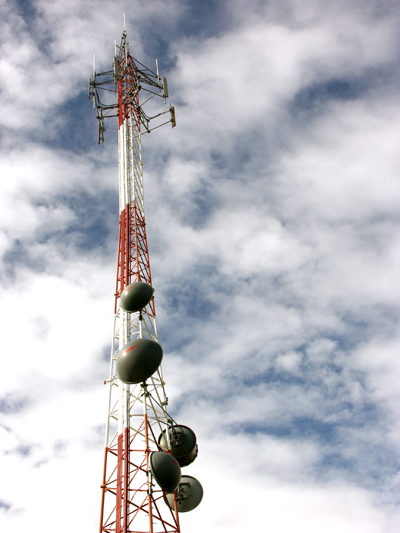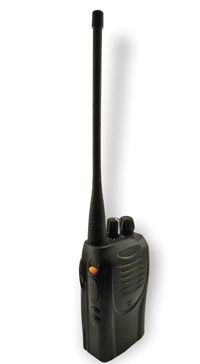
Features
Codes and standards
Hot topics
A clear message
It seems likely that the federal government will set aside a portion of the wireless spectrum specifically for first responders, giving firefighters and other emergency services access to wireless broadband connectivity in the future.
March 19, 2012
By Stefan Dubowski
It seems likely that the federal government will set aside a portion of the wireless spectrum specifically for first responders, giving firefighters and other emergency services access to wireless broadband connectivity in the future. But that doesn’t mean the battle for better communication technology is over.
 |
|
| Some groups are opposed to a dedicated broadband spectrum for emergency services, including communications service providers who say that even if there is a dedicated spectrum, money will not be available to install the technology required to use it. They want the spectrum to be made available to wireless providers.
|
In fact, representatives of a tri-service committee representing fire, police and ambulance say it’s time for first responders to ramp up arguments in favour of dedicated broadband for emergency communication to make sure the federal government stays pointed in the right direction.
“We still need to be out there pitching and selling it, especially now,” said Pascal Rodier, superintendent, British Columbia Ambulance Service.
Rodier, plus Bill Moore, superintendent of the Halifax Regional Police, and Michael Sullivan, division chief with Ottawa Fire Services, made presentations at the Fifth Canadian Public Safety Interoperability Workshop in Ottawa in December. Representing the Tri-Service Special Purpose Committee on 700 MHz for Mission-Critical Public Safety Data, they pointed out that the federal government seems to understand the need for emergency broadband services, but there’s still plenty of work to do.
The government plans to auction off wireless spectrum at the 700 MHz frequency in the next year or two – a frequency that works very well for high-speed wireless data connections. The prospective bidders include Bell Canada, Wind Mobile, and other wireless communication service providers.
The Tri-Service Committee is working to ensure that the government sets aside a portion of the spectrum for first responders, such that emergency workers will be able to use broadband communications down the road.
If the government doesn’t set the spectrum aside, first responders will have to share the airwaves with everyone else, committee members argue. That means during emergencies, first responders could be competing with people watching videos and downloading apps, which could make it difficult for emergency-services personnel to establish a connection.
 |
|
| During emergencies, first responders could be competing with people watching videos and downloading apps.
|
Moore said the committee is encouraged by the response it has received from the government so far. After the last federal election, Prime Minister Stephen Harper sent a letter to Chief William Blair, president of the Canadian Association of Chiefs of Police. “Our government is committed to setting aside spectrum for emergency responders as part of the next wireless spectrum auction,” Harper wrote.
But the government has also been hearing from organizations opposed to the set-aside. In a public consultation last year, Industry Canada received comments from communication service providers indicating that a set-aside would be the wrong thing to do.
Wireless phone company Mobilicity, for instance, said that even if emergency services get the spectrum, they won’t have the money to install the technology required to use it. If the set-aside spectrum was auctioned off to wireless service providers, however, “the additional funding that is raised could be used to contribute to the cost of building a network in other spectrum ranges, or to support wireless operations that can be given priority usage and roaming rights on the commercial spectrum.”
Wind Mobile also disagreed with the set-aside. “Wind believes that any commercial wireless operators that are successful in bidding in the auction for 700 MHz spectrum should work with public safety agencies to ensure that their needs are met and should provide access to their networks as required based on their actual needs and on reasonable commercial terms.”
The Tri-Service Committee submitted comments to the public consultation as well, arguing in favour of the set-aside. Rodier said most of the submissions from other groups and individuals supported the committee’s stance.
But that was nearly a year ago, and the broadband issue has fallen off the radar screen for many first responders, Rodier said.
“A lot of the energy has died off.”
What should firefighters do to support the drive for emergency broadband services? According to Moore, they should be contacting members of parliament, provincial government representatives and municipal councillors to explain the importance of the set-aside.
 |
|
| The cost of a new broadband communication system is among the challenges for emergency services.
|
Public-safety organizations also need to move forward on developing procedures to deal with broadband data, Sullivan said. What if dispatch receives a request for assistance via text message? What if the caller wants to forward a picture of the accident scene? It’s the kind of detail that would help first responders attain situational awareness more quickly – but only if they have the procedures in place to accept and process the information coming in.
Sullivan said that after an earthquake in the Ottawa area, fire dispatch fielded 500 calls in one hour. Add broadband information to the equation and it won’t be long before dispatch is overwhelmed, he said.
Governance is another important issue, Moore said. He explained that in United States, the government and emergency services created the Public Safety Spectrum Trust to oversee the spectrum licence. Canadian authorities need to create a governance model for the spectrum on this side of the border. Should it be a trust? A non-profit organization? A society? Should it operate as a single national body, or should it consist of regional entities?
Many questions remain on the business side as well, Moore said: how will we pay for a new broadband communication system? Who will be in charge of building it out? How will negotiations with technology providers be handled?
Work is underway to address these issues, he said.
Asked if he thinks the government will set aside the spectrum for public safety organizations, Moore said he’s confident it will, given the encouraging letter from the prime minister on the subject.
Rodier seemed less confident. “Our impressions are that they want to look at it,” he said, explaining that the public consultation on the auction is a good sign.
Sullivan said emergency services can’t afford to be left behind in the broadband era. “I think they have to set the spectrum aside,” he said.
Stefan Dubowski is a freelance writer based in Ottawa.
Print this page